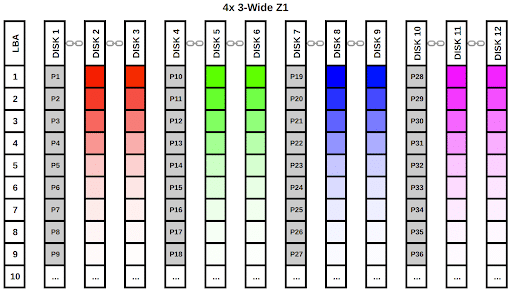Hi. I am getting slow write speeds when copying files from Windows desktop to FreeNAS via SMB share over 10Gb copper. Any suggestions? Thank you.
I've tried adding the 10Gb tunable settings from this page, no change/
 jro.io
jro.io
Similar results with Windows explorer copier and Teracopy
Results (44GB single file)
From Windows desktop to FreeNAS
169 MB/s
From FreeNAS to Windows desktop
547 MB/s
Also tried to my Synology DS1812 (6-disk SHR-2)
From Windows desktop to Synology
325 MB/s
From Synology to Windows desktop
439 MB/s
Here is my setup
FreeNAS-9.10.2-U6
X9SRL-F
E5-1620v2
96GB RAM
12-disk 8TB RAIDZ3 w/ 1MiB recordsize
X540-T2 NIC
Windows 10 build 1809
C246-WU4
E-2288G
32GB RAM
P3600 SSD
X550-T2 NIC
Netgear XS505M
I've tried adding the 10Gb tunable settings from this page, no change/
Building a NAS
Similar results with Windows explorer copier and Teracopy
Results (44GB single file)
From Windows desktop to FreeNAS
169 MB/s
From FreeNAS to Windows desktop
547 MB/s
Also tried to my Synology DS1812 (6-disk SHR-2)
From Windows desktop to Synology
325 MB/s
From Synology to Windows desktop
439 MB/s
Here is my setup
FreeNAS-9.10.2-U6
X9SRL-F
E5-1620v2
96GB RAM
12-disk 8TB RAIDZ3 w/ 1MiB recordsize
X540-T2 NIC
Windows 10 build 1809
C246-WU4
E-2288G
32GB RAM
P3600 SSD
X550-T2 NIC
Netgear XS505M


